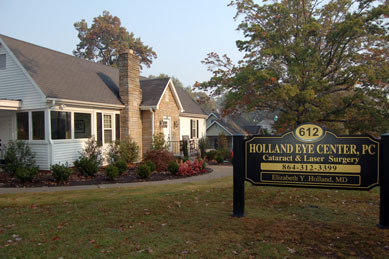Cataract Surgery & Premium Lenses
About Cataracts
Over fifty percent of people over the age of 60 (and quite a few younger than that) suffer from cataracts. Almost everyone develops cataracts as they grow older. Cataracts form at different rates and can affect one or both eyes. A cataract is a progressive clouding of the eye's natural lens. The lens scatters the light passing through the eye to the retina. Early cataract changes may not disturb vision, but over time the cataract will blur the vision and cause glare symptoms. The changes can be so gradual that the patient doesn't even realize how much vision they have lost.
Patients with cataracts may have blurry or double vision, halos around bright light, difficulty seeing at night, glare, difficulty distinguishing colors, and trouble with reading. Cataract are usually a result of age, but trauma, heredity, diabetes, certain medications, UV exposure, smoking, glaucoma and certain metabolic conditions can contribute to the onset of cataracts.
Dr. Holland can perform special testing to determine how much your vision has been affected by a cataract. Currently there is no medical treatment to reverse or prevent the development of cataracts. Once they form, the only way to achieve clear vision again is through cataract surgery.
Dr. Elizabeth Holland is an accomplished cataract surgeon. She can discuss with you the options of surgical removal of your cataract to improve your vision. Cataract surgery is only medically necessary when you are having trouble doing your daily activities. Dr. Holland will discuss with you the details of the procedure, risks and benefits of surgery, as well as your options regarding the implant that can be placed in your eye during the surgery. Implant technology is advancing rapidly. Dr. Holland will discuss with you, whether a standard monofocal lens versus a premium lens which includes, toric, trifocal, extended depth of focus or multifocal lens, would be the best option for your visual needs. Utilizing advanced wavefront technology, Dr. Holland will choose the implant that will provide you with the best vision postoperatively.
Cataract surgery is usually done on an outpatient basis. You may be asked to skip breakfast and avoid drinking liquids, depending on the time of your surgery. Also, do not wear makeup or lotion on the day of surgery. Upon arrival at the facility, you will be given eye drops to dilate your pupils and a sedative to help you relax. A local or topical anesthetic will make the operation painless.
The skin around your eye will be thoroughly cleansed, and sterile coverings will be placed around your eye and head. Under an operating microscope, a small, less than 3 mm incision is created in the cornea. Dr. Holland will then remove your cloudy lens using the process of phacoemulsification, which utilizes ultrasonic energy to breaks the cataract up into small pieces that are then aspirated from the eye.
A small acrylic or silicone lens is then inserted inside the eye to replace the natural lens that was removed. The new lens is called an intraocular lens or implant and is held in position by being placed in the envelope of tissue (the lens capsule) that used to hold the natural lens in place.
Most incisions used for cataract surgery are self-sealing. However, on occasion, incisions may need to be sutured.
Most patients are seen for follow up one day, one week, and one month after surgery. If needed, glasses are usually prescribed one month after surgery.




